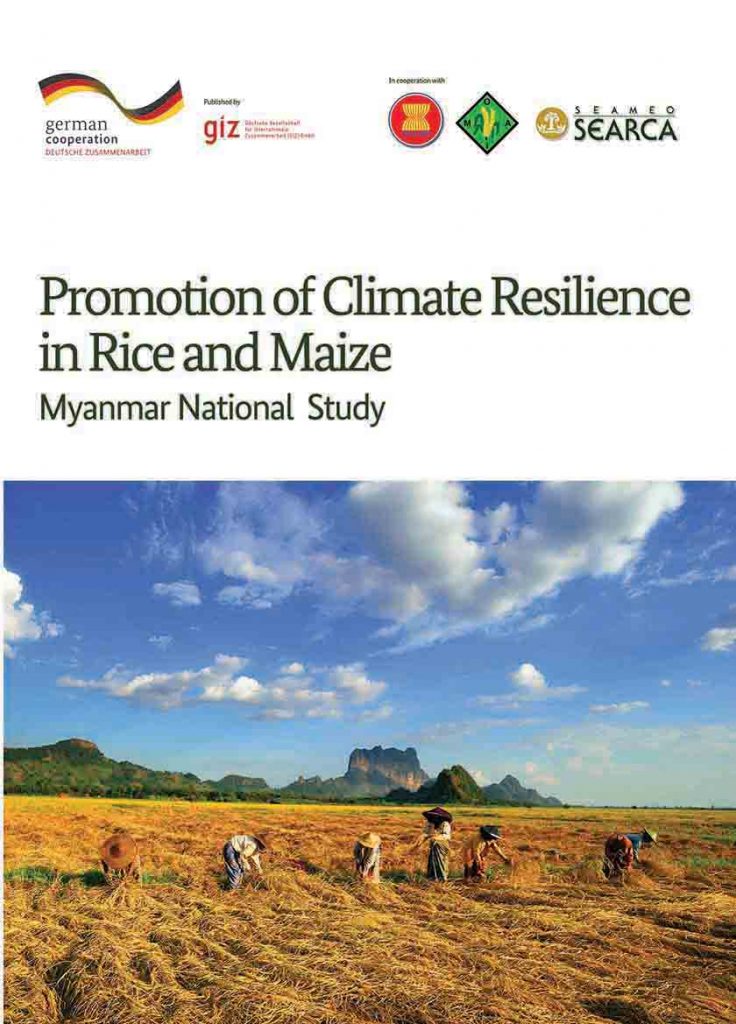
Myanmar is already experiencing a range of observed climate changes, such as declining precipitation, increasing water scarcity, rising temperatures and growing frequency of extreme weather events. These changes pose a serious threat to the agro-ecosystems and natural resources that underpin the agriculture sector. Moreover, the ongoing and forecasted climate change is a great challenge that will compound existing development problems, affecting food security. Five good practices have been identified within the course of this study. Among them three are identified for rice value chain, namely: Good Agricultural Practices (GAP), traditional farmers’ adaptation practices (change of crop/crop varieties/cropping patterns, time of sowing and crop management practices depending on monsoon rain), and use of climate resilient varieties; while two categories (lowland & upland areas) of good practices of maize production are the recommended for maize value chain, namely: maize residues for cattle feed and compost and hybrid maize production (lowland areas); and maize cultivation before monsoon rains and use of Site Specific Nutrient Management (upland areas).